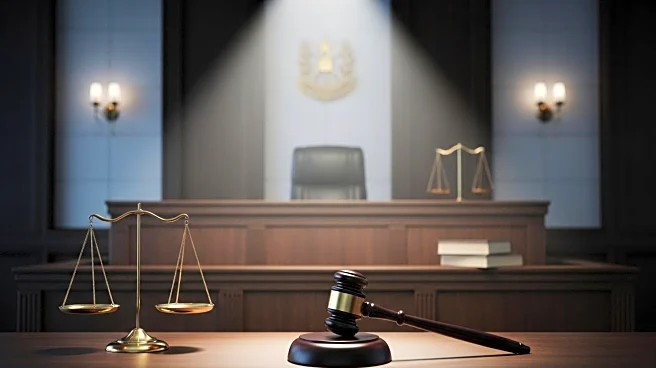What's Happening?
Ryan Routh, accused of attempting to assassinate then-candidate Donald Trump, is set to call his first witness and may testify in his own defense at his federal trial in Fort Pierce, Florida. Representing himself, Routh faces charges including attempted assassination, assaulting a federal officer, and firearm possession. Prosecutors have presented extensive evidence, including call logs, text messages, and surveillance footage, suggesting Routh's preparation for the alleged attempt. The trial has seen testimony from 38 witnesses, with Routh's daughter attending daily.
Why It's Important?
The trial is significant as it addresses serious charges against Routh, including the attempted assassination of a major presidential candidate. The outcome could have implications for security protocols surrounding political figures and influence public perception of threats against political leaders. The case highlights the challenges of self-representation in complex legal proceedings, with Routh's decision to testify potentially impacting the trial's direction. The evidence presented underscores the importance of thorough investigations in cases involving national security.
What's Next?
Routh's decision to testify could lead to intense cross-examination by prosecutors, potentially affecting the trial's outcome. The court will continue to hear from witnesses, including those called by Routh, as the trial progresses. The legal proceedings may prompt discussions on security measures for political figures and the handling of similar cases in the future.
Beyond the Headlines
The trial raises questions about the motivations behind such actions and the psychological factors involved. It also highlights the legal complexities of self-representation and the potential risks associated with it. The case may lead to broader discussions on political violence and the measures needed to prevent such incidents.









